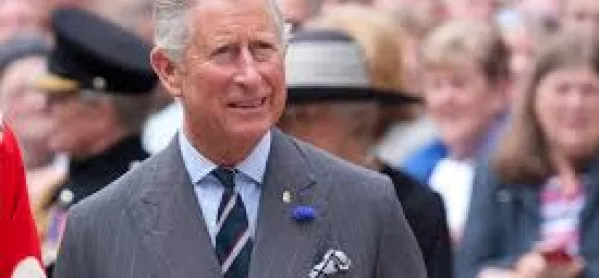The Prince of Wales is “very concerned” about the decline of arts subjects in school, the head of one of his charities has said.
Rosie Millard, chief executive of Prince Charles’ Children and the Arts organisation, made the comment before stars, including Benedict Cumberbatch, gathered to discuss the issue at the prince’s request.
The former BBC arts correspondent said the Royal Albert Hall conference was “the next stage” in a campaign to “increase and stop the general slide of arts and creativity in schools for children and young people”.
“The prince is very concerned about it and he wanted to have this day to bring together educationalists, politicians and arts leaders, artists and people to whom this matters and for whom arts has been their life,” she said.
The news follows Tes research revealing that significantly less time is being spent teaching music, art and drama in secondary schools than in 2011, as more than half of lesson time for 14- to 16-year-olds is now devoted to core subjects, such as English, maths and science.
Sam Cairns, co-director of the Cultural Learning Alliance, which represents 10,000 arts organisations campaigning for children to be given greater access to culture and the arts, commented on the Tes findings, saying: “It is a social justice issue.
“The middle classes continue to provide their children with access to arts, if they are no longer provided in school. So they continue to enjoy the benefits while the kids whose parents can’t pay don’t get the same boost.”
The prince’s passion for the arts was fostered by his grandmother, Ms Millard said.
“The Prince of Wales is aware that he has had an amazing life and because of his position has outstanding access to arts and creativity, which he’s always been a huge supporter of,” she said.
“When he was a young boy he was taken by the Queen Mother to see the Bolshoi Ballet and to see Shakespeare, and he said he didn’t really understand it…but he was aware of the magic of arts performance and the magic, beauty and creativity of culture.”
Ms Millard said he was “very keen” that all children and young people across the country should “share that magic and have a chance to see that magic”.
She added that parents needed to be reassured that doing an art or music A level would not result in their child “starving in a garret”.
Ms Millard went on to say that the arts should not be the preserve of the middle classes at home and should be “baked into the school day”.
Prince Charles founded Children and the Arts to work with arts venues across the UK to reach children in communities that may be in danger of missing out on creative and cultural experiences.
The coalition government, during Michael Gove’s tenure as education secretary, introduced the English Baccalaureate (EBacc), which measures the number of pupils achieving a grade C, or grade 5 under the new grading system, at GCSE in English, maths, science, history or geography, and a language.
There were concerns at the time that the focus on these core subjects would squeeze out others, such as art and drama.
The Royal Albert Hall event will see leading figures from movies, music, television and politics discussing the state of the arts and creativity in schools.
BBC director-general Tony Hall and former Tate director Nicholas Serota will be among those in attendance.
Other guests include comic Lenny Henry, performer Myleene Klass, fashion designer Dame Vivienne Westwood, cellist Julian Lloyd-Webber, actors Adrian Lester, Robert Lindsay, David Morrissey, Meera Syal and Zoë Wanamaker, culture secretary Jeremy Wright and arts minister Michael Ellis.
The Department for Education points out that music is compulsory in maintained schools from the ages of 5-14, and drama must be studied as part of English. It says that the number of pupils taking an arts GCSE is largely stable.





